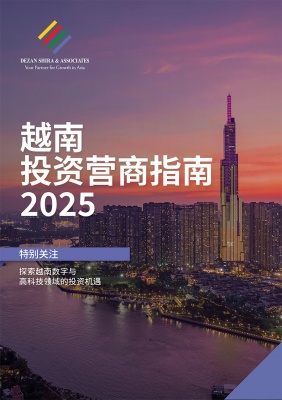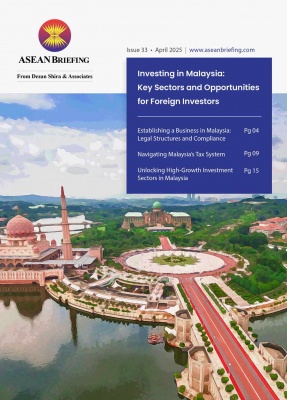
Our collection of resources based on what we have learned on the ground
Special Valuation Branch (SVB) Assessment – Import Procedures in India
Q&AThe process of importing goods in India underwent a significant change with the introduction of the self-assessment system. However, several multinational companies that intend to import goods into India still face challenges concerning HSN (Harmonised System of Nomenclature code) classification of goods, customs duty rates, and delays in customs clearance)
The increase in foreign direct investment in India over the past decade has led to increased cross-border transactions between related parties, thereby requiring certain compliances to be adhered to by multinational companies.
In this Q&A session, we speak with Business Advisory Services Senior Associate Vikas Saluja to discuss some of the most commonly asked questions that we receive from our subscribers regarding the relevance of Special valuation branch to importers in India.
What is a Special Valuation Branch (SVB)? What is the purpose behind the constitution of an SVB?
A Special Valuation Branch is a unit of the Indian customs authorities that investigates the valuation of goods during imports between related persons/ parties. A special relationship between an Indian importer and a foreign supplier may impact the transaction price of the imported goods and thereby affect the customs duty imposed on such transactions. Hence, an SVB's function is to examine the impact of such a relationship on the invoice value of the imported goods.
Under Section 14 of the Customs Act, 1962, customs duty is imposed on the value of imported goods. For e.g., if an Indian buyer and foreign supplier are related, say as holding and subsidiary, the goods may be imported at a discounted price that could be lower than the normal market price. Accordingly, the customs duty imposed will be lower, leading to a potential loss in revenue to the Government.
The SVB’s function is to examine the impact of such intercompany relationship on the invoice value of the imported goods to ensure that the invoicing is follows the ‘arm’s length price’ or identify if they have been ‘undervalued’ for the purpose of reducing the Customs Duty liability. The said process is exactly opposite to the transfer pricing (TP) analysis under the income tax regulations, which tries to examine whether the goods supplied between related entities have been ‘overvalued’ to reduce income tax liability in India.
What is the basis of valuation of goods for the purpose of computing customs duties?
Custom Duties are calculated on the ‘assessable value’ of the goods, which refers to the ‘transaction value’ agreed between the supplier and the importer subject to certain inclusions (such as freight, insurance etc.) in the transaction value, if not already included and subject to condition that the buyer and seller are not related.
If the buyer and seller of the goods are related, the value is to be determined as per Customs Valuation (determination of value of imported goods) Rules, 2007 (‘CVR’) framed in this regard.
What is the meaning of the term “related” under the Customs Regulation?
As per the Customs Valuation Rules, 2007, an importer and exporter are deemed to be related only if:
- they are officers or directors of one another’s businesses;
- they are legally recognized partners in business;
- they are an employer and employee;
- any person directly or indirectly owns, controls, or holds five per cent or more of the outstanding voting stock or shares of both of them;
- one of them directly or indirectly controls the other;
- both of them are directly or indirectly controlled by a third person;
- together they directly or indirectly control a third person; or
- they are members of the same family.
Therefore, all transactions involving import of goods by an Indian company and its holding company, or any associated/ affiliated group company located outside India are considered to be transactions between related parties that are investigated by the customs authorities.
The importers will have to disclose the details of their relationship with the exporter in a declaration form along with the bill of entry. For assessing the applicable customs duty in case of related parties, the transaction value shall be taken to be the value of the imported goods only if the circumstances of the sale indicate that the special relationship between the importer and exporter didn’t influence the transaction value. The importer is required to give documentary evidence to this effect and if he is unable to do so, the concerned authorities will refer the case to the SVB for investigation.
What is the trigger point for a SVB Investigation to be initiated?
Ans: SVB investigation is generally triggered immediately at the time of first import of goods by the importer from its related party when, for the purpose of filing of Bill of Entry for customs clearance, the importer declares that the supplier is ‘related’ to the importer. In case of any unrelated party transaction, the SVB can also be triggered in case the importer declares that he is making additional payments to the supplier.
As the SVB gets triggered when the first consignment from related party arrives at the customs port for clearance, given the documentary filing requirements and the subsequent registration process, it is advisable to prepare the said documents well in advance to avoid unnecessary delays in the clearance of goods and consequent levy of delayed clearance charges.
Which ports are handling the SVBs functioning in India?
Presently, the Customs department has SVBs functioning at five Customs port cities in India namely: Bengaluru, Chennai, Delhi, Kolkata, and Mumbai.
What is the validity of the Investigation Report? Is there any sunset clause?
There is no validity limit or sunset clause attached to the Investigation Report issued by the Customs authorities.
The valuation methodology, once accepted, shall stay in force until the importer intimates the customs authorities regarding any change in the circumstance surrounding the sale of goods (such as change in valuation methodology, additional payments by importer to supplier, execution of new intercompany agreements between the importer and its related parties outside India etc.).
To get more information on the processes and timelines involved regarding the registration under SVB and assessment thereof, or any other related aspect, please do not hesitate to contact us.
Our team of experts will be happy to support you.
< BACK TO LIBRARY
Subscribe to receive latest insights directly to your inbox
Subscribe NowOur Clients
Discover our esteemed global clients across diverse sectors. We believe in providing our clients with exceptional service and a commitment to being their partner for growth in Asia.
See what our clients say about us































